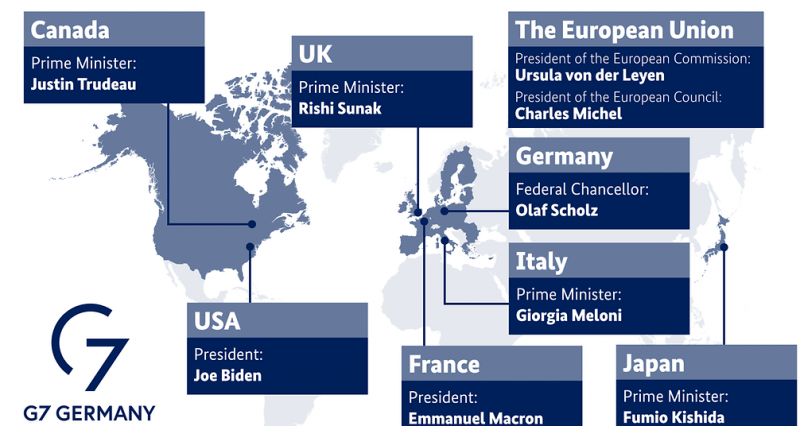
G7: Against the backdrop of the ongoing conflict in Ukraine, the European Union (EU) and the United States have embarked on a collaborative effort to address energy security concerns.
Both entities share deep apprehensions about the war's repercussions on energy prices and supplies, leading them to jointly commit to reducing their reliance on Russian energy sources and fostering the development of alternative energy solutions.
The groundbreaking agreement, jointly announced by European Commission President Ursula von der Leyen and US President Joe Biden during the G7 summit in Germany, outlines a multifaceted approach to energy security.
Also Read: North Korea Conducts Intercontinental Ballistic Missile Test, Igniting Global Concerns
Key components of this collaboration include diversifying energy supplies, enhancing energy efficiency, curbing energy consumption, investing in renewable energy sources, and advancing clean energy technologies.
This landmark agreement represents a significant shift in the EU's energy security strategy, particularly in response to its reliance on Russian natural gas.
Currently, approximately 40% of the EU's natural gas imports come from Russia, a precarious dependency brought into sharp focus by the war in Ukraine. The agreement underscores that Russia can no longer be considered a reliable energy supplier, necessitating diversification and increased self-reliance.
The accord also reflects the deepening cooperation between the EU and the United States on energy security, reflecting a shared commitment to reducing dependence on fossil fuels while promoting sustainable energy alternatives.
The EU and the US recognize that fostering energy security is not just a matter of geopolitical significance but is also intertwined with addressing global challenges like climate change.
Despite the commendable objectives, the agreement does not come without challenges. The EU will need to embark on substantial investments in new energy infrastructure, overcoming political opposition to certain measures, such as expanding liquefied natural gas (LNG) imports. However, these hurdles are outweighed by the importance of diminishing reliance on Russian energy supplies.
One of the central pillars of the agreement is the diversification of energy supplies. This involves reducing dependence on a single source or provider, specifically Russia, and increasing imports of LNG from the United States and other nations.
This step aims to bolster energy security by ensuring a variety of energy sources, reducing vulnerability to supply disruptions, and mitigating price fluctuations.
Enhancing energy efficiency and curbing energy consumption are pivotal components of the collaborative strategy. By optimizing energy use, both the EU and the US can reduce their reliance on external energy sources while minimizing environmental impact. This entails adopting innovative technologies, incentivizing energy-efficient practices, and promoting responsible consumption patterns.
Also Read: China and Russia's Joint Military Exercises in South China Sea Raise Regional Tensions
Investing in renewable energy sources is a critical element of the agreement. Renewable energy not only offers environmental benefits but also strengthens energy security by diversifying the energy mix and reducing dependence on fossil fuels.
This encompasses the development of wind, solar, hydro, and other clean energy technologies, fostering a sustainable energy future.
The agreement also places emphasis on the advancement of clean energy technologies. By investing in research, development, and innovation, both the EU and the US aim to accelerate the transition to clean energy sources. This will not only support their energy security goals but also stimulate economic growth and job creation in the clean energy sector.
Beyond the energy sector, this agreement signifies the growing unity between the EU and the United States in the context of the Russian threat.
The two sides are collaborating to address multifaceted challenges, including the ongoing conflict in Ukraine, the global energy crisis, and the urgency of combating climate change. The cooperative endeavor on energy security is a testament to this burgeoning unity and collective commitment.
In the wake of this momentous agreement, the international community is reminded of the critical importance of energy security. The global landscape is characterized by evolving energy dynamics, and energy security is not merely a regional concern but a vital element of global stability.
Also Read: Pakistan Thwarts Major Cross-Border Taliban Attack; 4 Soldiers Martyred in Intense Clash
The EU and the US' collaborative efforts on energy security in the face of the Ukraine conflict reflect a proactive approach to safeguarding their interests while reducing dependence on Russian energy supplies. This landmark agreement signifies a paradigm shift in energy security strategies and underscores t